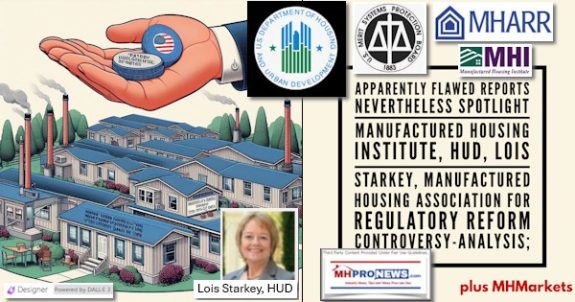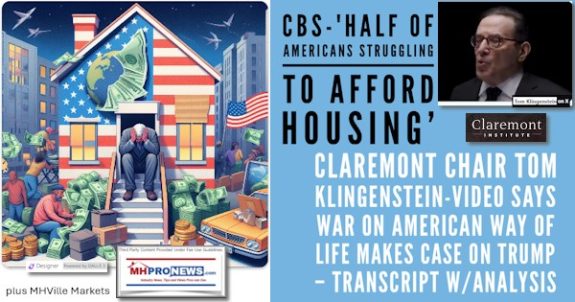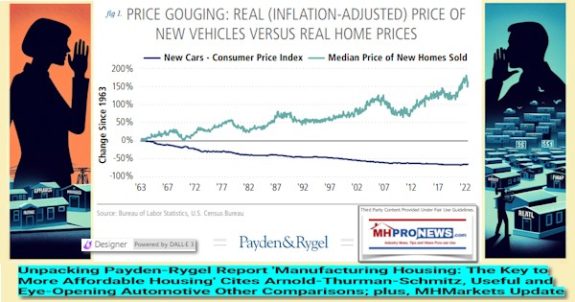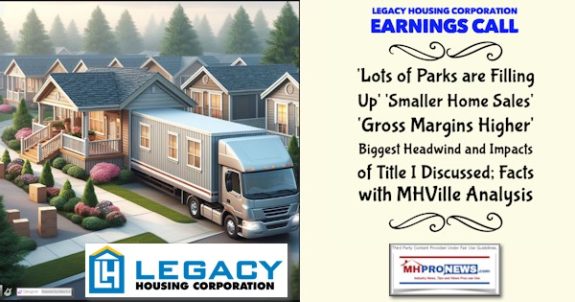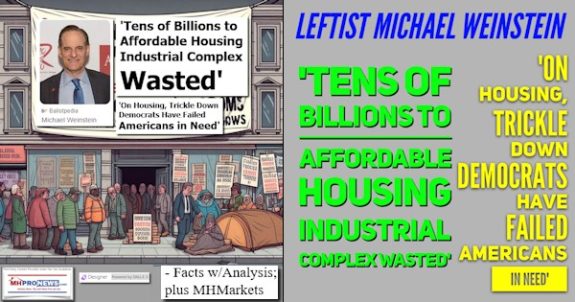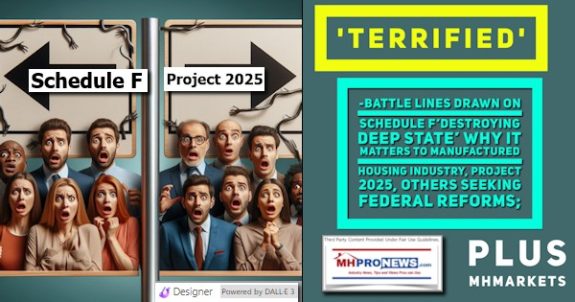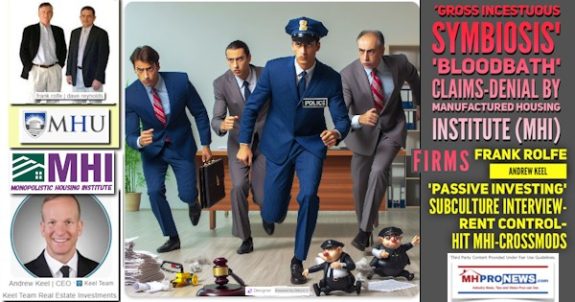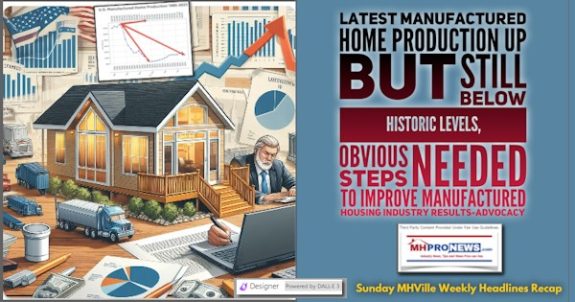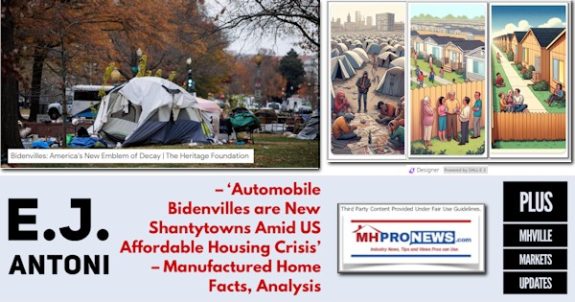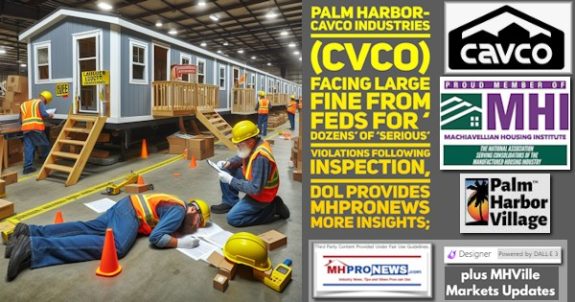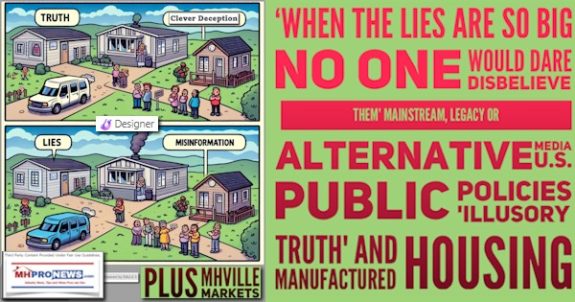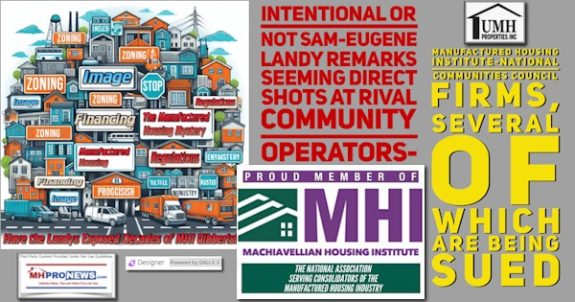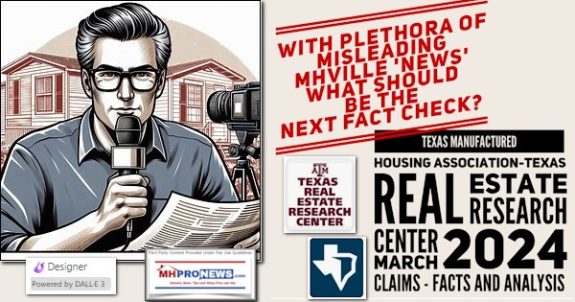Top National News
Prototype of Standardized Monthly Mortgage Statement Is Released
The Consumer Financial Protection Bureau on Feb. 13th released a prototype for a proposed standardized mortgage servicer statement designed to provide easy-to-understand information to borrowers. The new one-page document will include information such as maturity date; prepayment penalty; outstanding principal; when an adjustable-rate mortgage’s interest rate could reset; and how much of the monthly payment was used to pay down the principal, the interest, and escrow. Although this information is commonly offered, there are no industrywide standards; and this proposed standard was greeted with positive reactions from servicers. The agency has posted the draft online and requested commentary from the industry and the public before it releases its formal proposal over the summer. The CFPB has already released prototypes for the simplification of two other forms and currently is developing a new disclosure rule for a certain type of adjustable-rate mortgage.
Housing’s Firmer Foundation
The S&P/Case-Shiller index of U.S. home prices fell in November from the previous month and from a year earlier, but optimists say hopes of a housing recovery are not at all diminished. Some argue that the gauge is not necessarily a reliable indicator for current market conditions given that, unlike the Federal Housing Finance Agency’s index, it incorporates homes with jumbo and subprime mortgages into its calculations. That is relevant because many properties backed by subprime loans are now being sold in foreclosure, and their deteriorated conditions command lower prices. The inclusion of these homes in the index may be skewing the data downward. Additionally, the index is based on a three-month average of sales, meaning that the numbers for November include deals completed in October and September. Considering the typical two-month, and sometimes longer, lag time between sales and closings, the November results are derived from home deals reached during summer — when recession loomed heavily. Market conditions have since improved and, likely, residential prices as well.
Senate Republicans Challenge Legitimacy of Obama’s Consumer Bureau Chief
Appearing before the Senate for the first time since his controversial recess appointment in January, Consumer Financial Protection Bureau Director Richard Cordray got an earful from Republicans still fuming about Obama’s decision to appoint him. “If we accept the premise of your validity in this position, then … our ability to offer advice and consent basically disappears,” said Sen. Mike Johanns (R-Neb.). “I don’t know how anyone could maintain at this point that your appointment and your service in this position is valid.” Four Republicans on the panel refused to attend the hearing, arguing that to do so would legitimize an invalid appointment.
Industry News
Oil and Gas Boom Lifts U.S. Economy
The U.S. economy is enjoying the fruits of a new energy boom, adding about 158,500 oil and gas jobs over the past five years and even more positions at companies supplying the energy industry and in the broader service industry. The windfall is far-reaching, too: Cavco Industries’ Fleetwood Homes division in Nampa, Idaho, where there are no oil and gas operations, has been rejuvenated just the same, cranking out manufactured homes to shelter oil-field workers in North Dakota. Production at the plant is up 25 percent since last fall, allowing management to rehire workers that previously were laid off and to authorize additional hours for current employees.
Champion Home Builders Commercial Structures Division Slated for Rapid Growth in 2012
Champion Commercial Structures recently announced that the company has won contracts to build three major projects: one hotel and two employee housing projects for the oil and natural gas industry. The firm, an arm of the manufactured and modular housing producer Champion Home Builders, said the new contracts suggest that the division is positioned for significant growth in 2012. “With a centralized technical team, growing commercial dealer base, and access to 16 manufacturing plants across the country, we believe we are changing the way people look at construction,” said Jack Lawless, CEO of Troy, Mich.-based Champion Home Builders. The company believes its national reach is a key reason that Champion Commercial Structures was selected for the jobs. The firm will build a La Quinta Hotel and a variety of workforce housing options in natural gas drilling locations across the country. The firm expects to see continued growth in both the hospitality and oil and gas industry throughout the year.
Drew Industries Reports Fourth Quarter and 2011 Full-Year Results
Drew Industries, which supplies parts to the manufactured housing and recreational vehicle industries, posted fourth-quarter net income of $4.1 million — up from $3.1 million during the same three months of 2010. The company’s manufactured housing division reported $3 million in operating profit on net sales of $29 million for the period, versus $1.3 million on $20 million in net sales a year earlier. For all of 2011, operating profit in the manufactured housing segment surged to $12 million on net sales of $111 million from $9.6 million on sales of $96 million the year before.
Phoenix-Based Cavco’s Profit Soars on Acquisition
Cavco Industries posted net income of $1.68 million for its third quarter ended Dec. 31st, the Phoenix-based developer of manufactured homes reports. Thanks to the $83.9 million acquisition of Palm Harbor Homes in the previous quarter by Fleetwood Homes — a Cavco unit that also produces manufactured housing — the financial results were up from net income of $24,000 a year prior. On a per-share basis, income came in at 24 cents in the third quarter compared to half a cent a year earlier.
On a Budget? Take a Look at Manufactured Homes
Compared to a similar structure erected via conventional methods, buyers of a factory-built home can expect to pay 25 to 30 percent less, estimates Manufactured Housing Institute Chairman Joseph Stegmayer. Citing Commerce Department and Census data, the organization put the average cost of a new manufactured residence at $41.24 per square foot on a nationwide basis in 2009; while a new, single-family property built on site averaged $83.89 per square foot. Savings can run even higher in rural locations, says Stegmayer, who also heads manufactured home builder Cavco Industries. Moreover, he adds, manufactured housing units have enjoyed dramatic improvement over the last decade and now appeal to a wider base of clientele. “There is a much broader line of products with many more styles, designs and trends that are comparable to anything that site-built does,” Stegmayer notes. Not only does that make manufactured homes a good choice for buyers looking to make their first foray into homeownership, but it also provides an option for higher-end consumers who do not want to spend a fortune to build but who still want the same luxury options commonly found in site-built housing. “Maybe they can afford a higher-priced home,” Stegmayer muses, “but they don’t want all their money tied up in a home. They buy a factory-built product at a much lower cost and use that excess income for other purposes: travel, hobbies, pastimes, investment. We’re seeing a lot more of that.”
Clayton Homes, TVA Partner on Energy Efficiency Incentive
The TVA has agreed to provide energy-efficient upgrades, free of charge, to any Tennessee Valley home buyer who contracts with manufacturing housing specialist Clayton Homes. Under the collaboration, TVA will spend $1,500 to outfit each manufactured residence with energy-efficient heating and cooling units, compact fluorescent lighting, Energy Star-rated appliances, high-performance windows, insulation systems, and construction systems that create a tight building envelope. The additions are expected to save the average manufactured-home owner about 30 percent on their electric bills. Clayton Homes has offered Energy-Star rated dwellings for some time, but only 150 of the units have been installed in the state since 2002. The builder expects the initiative to boost that number to 2,200 homes in the TVA region — which encompasses not only most of Tennessee but also parts of Alabama, Georgia, Kentucky, Mississippi, North Carolina, and Virginia. The effort is expected to cement Clayton as a leader in energy efficiency and give it a marketing advantage, according to Brandon O’Connor, Clayton i-House product manager. “This is a way to make it a standard,” he explains. “This is a way for us to draw a line in the sand.” TVA’s Bob Balzar said the utility plans to expand the program to traditional home builders once the residential construction market rebounds. The Systems Building Research Alliance helped the two companies to create the program and will take on administering it.
Brad Pitt’s Group Helped by Zero-Energy Homes
Green housing — expected to claim as much as 38 percent of the residential construction market by 2016, compared to 17 percent last year — is getting a boost as two builders, LivingHomes and Shea Homes, prepare to offer affordable zero-energy homes. LivingHomes’ offering, the C6, is a 1,232-square-foot, three-bedroom, two-bath prefabricated home; and part of the proceeds for each unit sale will benefit actor Brad Pitt’s Make It Right charity that builds low-cost, sustainable housing for victims of Hurricane Katrina. The prefab model has been designed to earn the U.S. Green Building Council’s platinum rating and is fully constructed by Cavco in under two months with on-site installation in one day. Shea Homes, meanwhile, is launching its “SheaXero” product that will combine solar panels with high energy efficiency to produce all the power that the house is expected to use. The LivingHomes prefab house will cost $179,000 — minus the land and the price of the solar panels as well other incidental costs anticipated to total approximately $50,000. Two models of the C6, which was inspired by the homes of developer Joe Eichler, are on display in California.
NeighborWorks Montana Aims to Replace Old Mobile Homes
An initiative to replace aging mobile homes in the Great Falls area was spearheaded by NeighborWorks Montana, which received a $50,000 grant to run the program. It will replace 33 qualifying manufactured homes with updated three-bedroom, two-bathroom models with 1,178 square feet that are designed to provide energy savings. An open house was held in a model of the manufactured homes — which feature insulated ceilings and floors, 6-inch exterior walls, double-paned windows, and foundations — which are valued between $110,000 and $115,000. NeighborWorks says that many residents will be eligible for down payment and other assistance, and will help arrange financing.
Manufactured Home Community Turns Into Healthy, Active Place
Chris Parrish, owner of the Parrish Manor manufactured home community in Raleigh, N.C., went above and beyond the call of duty when he set out to improve the community — which was situated in a “food and recreation desert,” with only fast food restaurants nearby and no parks or sports fields. Instead of tossing footballs in the narrow space separating the development’s 280 homes, resident children now have access to their own soccer field as well as playgrounds and free transportation to the local Boys and Girls Club. Parrish also added an organic community garden and a car maintenance shed for the locals. He even obtained a three-year, $85,000 state grant to get his residents exercising more by adding a walking trail, picnic area, healthy cooking classes, and sports program for kids. The manufactured home community also receives regular visits from a mobile petting zoo and dental clinics. For his next project, Parrish has decided to create a community center that would double as a tornado shelter — which also will qualify for FEMA funding. “In the public health world, we don’t come across too many like Chris,” notes Marjorie Lanier, coordinator of North Carolina’s Healthy Places, Active Spaces grant program.
MHI News
MHI Welcomes New President/CEO Richard A. Jennison
On February 16th, an announcement was made that Richard “Dick” Jennison has been appointed as the new President and CEO of MHI. Jennison comes to MHI from Omni Solutions Group where he was partner and Senior Vice President for Marketing and Business Development overseeing and managing its substantial not-for-profit business practice. Omni Solutions Group is a professional services firm that offers technology solutions and support services to small and mid-size businesses and associations.
Prior to joining Omni Solutions, for nearly eight years Jennison was President and CEO of the Brick Industry Association (BIA), a $7 million national trade association representing the residential and commercial construction industry. In that capacity, he directed advocacy efforts for the brick industry in Washington, D.C. During his tenure at BIA, he led unification efforts to join four independent regional brick associations to create a national organization (BIA) encompassing 79% of the contiguous states. He managed the creation of a new governance structure to meet the organizational goals of BIA and fostered strategic alliances and partnerships to drive the success of the brick industry. He was responsible for overseeing activities to safeguard the industry from burdensome regulatory and governmental regulations and initiated research that influenced national and local legislation in the protection of the industry.
Prior to Dick’s leadership role at BIA, he served as Chief Operating Officer at the Point-of-Purchase Advertising International (POPAI), a $5.5 million international retail in-store marketing association; and Vice President, Marketing and Public Relations, for Citizens Bancorp, a $5 billion regional financial services organization.
“It is a tremendous privilege to join MHI and I am honored to be selected for this great opportunity,” Jennison stated. “I am excited to work with the MHI leadership, members and staff to represent this important sector of the housing industry in Washington, D.C. Together I believe we can accomplish the mission and goals of MHI to advance the industry, improve the regulatory and finance environment, promote the high quality and great value inherent in our homes and build consensus among industry partners.”
In the position of President and CEO, Jennison is responsible for the management of the association in accordance with the bylaws, budget and policies established by the MHI Board of Directors. He will oversee staff in the areas of government affairs, codes and standards, communications, marketing, membership development, meetings, education and administration.
“We are pleased to welcome Dick Jennison as the new President and
CEO,” said MHI Chairman Joe Stegmayer. “He brings tremendous credentials and demonstrated leadership ability at multiple associations.”
Jennison can be reached at (703) 558-0678 or rjennison@mfghome.org.
MHI Seeks to Build Support for Manufactured Housing Regulatory Relief Legislation
On January 31st, Reps. Stephen Fincher (R-TN), Joe Donnelly (D-IN) and Gary Miller (R-CA) introduced bipartisan legislation (H.R. 3849) to reduce regulatory burdens that impede access to affordable manufactured housing financing. The legislation would address two significant issues impacting the ability of consumers to obtain mortgage financing for manufactured homes:
• Reducing the threshold by which small balance manufactured home personal property loans are considered High-Cost Mortgage Loans under provisions within the Dodd-Frank Wall Street Reform and Consumer Protection Act (P.L. 111-203) which will thereby reduce the number of loans subject to punitive and onerous liabilities.
• Clarifying that those selling manufactured homes—who are not fundamentally engaged in the business of originating mortgage loans—are not to be defined as mortgage originators under the federal SAFE Act which will thereby ensure they are better able to provide adequate technical assistance to consumers throughout the manufactured home buying process (similar to the SAFE Act treatment of real estate brokers).
Assistance is needed from MHI members and industry stakeholders to contact U.S. Representatives and specifically request they co-sponsor H.R. 3849 (Preserving Access to Manufactured Housing Act). An issue brief with sample letter can be accessed by clicking here.
MHI members can contact Jason Boehlert at 703-558-0660 or jboehlert@mfghome.org.
Lawmakers Reach Agreement on Payroll Tax Cut Extension
On February 15th, House leaders announced a bi-partisan agreement on legislation to extend the Social Security payroll tax cut, unemployment benefits and Medicare payments to physicians beyond February 2012. The House and Senate approved the measure on Friday, February 17th and the legislation awaits the president’s signature.
A host of important temporary tax incentives, frequently called “tax extenders” including the New Energy Efficient Tax credit for manufactured and modular homes was not included in the payroll deal. The federal tax credit for manufacturers who build energy efficient homes (Section 45L) expired on December 31, 2011. Specifically, manufacturers who build ENERGY STAR homes were eligible to receive a $1,000 tax credit while modular home builders were eligible to receive a $2,000 tax credit by exceeding the International Energy Conservation Code (IECC) by 50 percent.
Although the tax programs can be extended retroactively and have been in past years, the heated budget debate over the escalating deficit will make the prospects for extending the housing tax credit more uncertain.
Several Senators including Senator Bingaman (D-NM), Senator Olympia Snowe (R-ME), Dianne Feinstein (D-CA), Maria Cantwell (D-WA), John Kerry (D-MA) and Tom Carper (D-DE) have vowed to continue working to find a path forward for tax policies to improve energy efficiency and clean energy incentives. On February 10th, the bi-partisan group of Senators sent a joint letter to the Secretary of the Department of Treasury, Tim Geithner and the Acting Director of the Office of Management and Budget, Jeffrey Zients urging them to support the extension of several energy efficiency incentives, including the New Energy Efficient Home Tax Credit (45L). To view the letter click here. If you are a constituent please thank your Senator for their support.
MHI is urging members to continue to personally contact their Representatives to act to extend the New Energy Efficiency Home Tax Credit beyond 2011. Contact information for congressional offices is available by clicking here.
MHI members can contact Rae Ann Bevington at 703-558-0675 or rbevington@mfghome.org.
MHI Testifies Before Congress on Manufactured Housing Program
On February 1st, Cavco Industries Director of Engineering Manuel Santana, P.E., testified on behalf MHI before the House Financial Services Subcommittee on Insurance, Housing and Community Opportunity. The purpose of the hearing was to hear from HUD, the industry, and other stakeholders about the effectiveness of HUD’s Implementation of the Manufactured Housing Improvement Act of 2000.
Mr. Santana told the committee that an efficient, streamlined system of building regulations is important to ensure a robust housing economy, the availability of financing, and enhanced acceptance from homebuyers and communities across the nation.
Mr. Santana, who is also a member of the Manufactured Housing Consensus Committee (MHCC), testified on four key provisions of the Manufactured Housing Improvement Act:
Installation Standards
• HUD’s establishment of minimum installation standards for manufactured homes, while not yet complete, has gone a long way to enhance consumer satisfaction and improve the quality and durability of manufactured housing.
Efficiency of the Rulemaking Process
• HUD has failed to keep the HUD code updated despite the Improvement Act requirement for HUD to act within one year after the MHCC recommends revisions to the standards. This has hindered the industry’s ability to keep pace with consumer demand and expectations.
• Mr. Santana told the committee that inaction by HUD to update energy standards now means the industry will be subjected to costly duplicative regulation by the Department of Energy.
Preemption
• Congress recognized the importance of federal preemption as a key element to the production and distribution of manufactured housing. A single uniform code is essential to manufactured housing in that it preserves affordability.
• Santana testified that HUD has not followed through on requests from MHI and the Consensus Committee to update its policy on preemption so that it is more attuned to the Improvement Act, which calls for the “broad and liberal interpretation of the HUD Code.” HUD’s narrow interpretation has led to an increase in state and local efforts to supplant the HUD Code with additional local and state regulation.
Appointment of a non-career administrator
• Mr. Santana told the committee, that even though the Improvement Act does not mandate the appointment of a non-career administrator, such an individual is key to an effective manufactured housing program in order to oversee the timely development of codes and standards and to serve as a much needed advocate for manufactured housing and its consumers in HUD’s overall mission, policies and programs.
Mr. Santana said that “In spite of a number of regulatory challenges facing our industry, there is no shortage of consumers who want to purchase manufactured homes. However their inability to obtain financing remains the most significant impediment to the industry’s growth.”
Henry Czauski, Acting Deputy Administrator for HUD’s Office of Manufactured Housing testified that the agency actively listens to all stakeholders to ensure manufactured housing continues to be affordable and a value option for homebuyers. Czauski said “I want to assure the subcommittee that the department has and continues to fairly and diligently implement the 2000 Act in accordance with the statutory purposes to protect the quality, durability, safety and affordability of manufactured housing.”
Ishbel Dickens, Executive Director of the Manufactured Home Owners Association of America (MHOAA), testified in support of the MHCC saying it is the only forum where homeowners have a voice. She highlighted the three major issues of concern to MHOAA: (i) adequate financing products to ensure loans on manufactured homes are as competitive as those for “site built” homes; (ii) long-term security of tenure; and (iii) reasonable rents and rules so that manufactured housing community living really is an attractive option for lower income households and retirees who desire to own their own homes, and so that home owners are not forced to abandon their homes as a result of economic eviction.
Representatives from the Manufactured Housing Association for Regulatory Reform, John Bostick and Edward Hussey, testified that HUD’s failure to properly implement the Manufactured Housing Improvement Act, has been a key factor in the prolonged decline in production levels of manufactured housing.
Oregon’s State Regulator for Manufactured Housing until 2005 and former MHCC Chairman, Dana Roberts criticized HUD for failing to implement the recommendations of the MHCC regarding installation standards. In his written testimony, he said that HUD should have adopted two sets of installation standards; one for homes that are permanently sited, and one for homes that are intended to be moved.
To view a webcast of the hearing and read the complete written testimony, click here.
MHI members can contact Lois Starkey at 703-558-0654 or lstarkey@mfghome.org.
HUD’s FY 2013 Budget Outlines Priorities for Manufactured Program — Requests No Fee Increase
The Administration’s Fiscal Year 2013 budget, proposes to fund the HUD Manufactured Housing Standards program at a level of $8 million. It includes $4 million in direct appropriations and up to $4 million in label fees. HUD has withdrawn its previous proposals to increase the current label fee from $39 to $60. HUD says in its extensive budget justification, that the “depressed economic state of the industry at the current time, the historically low production of manufactured homes, and the resulting projections for new production are all factors that support reconsideration of any fee changes in the fragile manufactured housing market.” Click here for a link to the HUD FY 2013 Manufactured Housing Standards Program, “2013 Summary Statement and Initiatives.”
The total budget, if approved by Congress, will authorize HUD to fund the manufactured housing program at a level of total of $11.9 million which included unobligated appropriations from previous years. The budget notes that its actual program activities will be determined by actual fees collected and may be below the level appropriated by Congress. Highlights of the FY 2013 HUD Manufactured Housing Program budget are as follows:
State Administrative Agencies (SAAs)
$3.8 million to fund the consumer complaint programs in 38 States with State Administrative Agencies.
According to HUD, it plans no increase for SAAs because most states are receiving funding equivalent to the funding levels of 2000 when shipment levels were significantly higher. Also, according to a number of SAAs, consumer complaints are down significantly since the implementation of statewide installation programs.
Monitoring Compliance
$5 million (up from $4 million) to re-procure its multi-year contract for Monitoring Primary Inspection Agencies and States. According to HUD’s budget justification, the contract will included services to:
– Review between one to three percent of the estimated 700,000 designs currently in active use.
– Review overall annual performance of the five Design Approval Primary Inspection (DAPIAs).
– Monitor the work of 17 in-plant Primary Inspection Agencies (IPIAs), including reviewing quality assurance plans, visiting each plant once a year and reporting to HUD.
– Handling consumer complaints in the 12 states where there are no state agencies to handle consumer complaints.
– Visits to SAAs to review the performance of SAA work on HUD’s behalf.
Installation Programs in 17 States
$1.5 million to regulate and enforce model installation standards in 17 states that do no have such programs.
Dispute Resolution Programs in 23 States
$500,000 to regulate and enforce Dispute Resolution Programs in states that do not have programs.
Manufactured Housing Consensus Committee (MHCC)
$400,000 to contract for the administration of the MHCC.
MHI members can contact Lois Starkey at 703-558-0654 or lstarkey@mfghome.org.
MHI Comments on DOE Enforcement Proposal for Residential Furnaces, Air Conditioners and Heat Pumps
On February 6th, MHI sent comments to the Department of Energy (DOE) on the December 7, 2011 Federal Register Notice, Enforcement of Regional Standards for Residential Furnaces and Central Air Conditioners and Heat Pumps. Click here to view the comments.
New regional energy efficiency standards for all residential furnaces will become effective May 1, 2013. New standards for central air conditioners and heat pumps will become effective on January 1, 2015. DOE asked for public comment on its proposed enforcement framework.
Depending on the enforcement option ultimately adopted, appliance manufacturers would be required to certify product efficiencies, inform distributors about appropriate regions, and track shipments to distributors. Distributors would be required to inform installers about appropriate regions, track unit sales to contractors, and collect information from contractors. Contractors would be required to install units in the appropriate region, maintain records and paperwork about installation location, and provide that information to appliance distributors.
Following are the highlights of MHI’s comments to DOE:
• The framework DOE is proposing is similar to the existing system of certification, tracking, and record keeping utilized in the manufactured housing industry for compliance with the Manufactured Housing Construction and Safety Standards for new manufactured homes.
• MHI strongly recommends that DOE reconsider its proposal for compliance of regional standards to apply to products “manufactured” on or after the compliance date of the standard. DOE’s proposed enforcement framework for regional standards apply to products “installed” on or after the compliance date of the standard rather than the date the products were “manufactured” or imported. This proposal is likely to be quite onerous and burdensome for both manufacturers and retailers.
• DOE, in establishing an enforcement and compliance framework must recognize the unique and specific role of the manufactured home builder, the retailer, and the installer in providing furnaces, air conditioners, and heat pumps with the manufactured home.
• MHI believes that a compliance framework that imposes excessive regulatory burdens on small business will reduce the availability of qualified contractors to install heating and cooling equipment. This is of particular concern in rural areas where the majority of manufactured homes are located.
• DOE, in establishing an enforcement and compliance framework must not lose site of other factors equally if not more important to the goal of reducing energy use. It is imperative that DOE carefully examine enforcement priorities and concentrate on programs that rely on shared responsibilities for all stakeholders and increase efforts to achieve a trained and skilled workforce.
MHI members can contact Lois Starkey at 703-558-0654 or lstarkey@mfghome.org.
Online Registration for MHI’s Legislative Conference Closes on February 23rd
On February 26–28, 2012, members of the Manufactured Housing Institute (MHI) will gather for the annual Legislative Conference & Winter Meeting at the Sheraton Crystal City in Arlington, VA/Washington D.C. This annual legislative conference brings together all segments of the factory-built housing industry including manufacturers, suppliers, lenders, land-lease community owners and managers, and retailers.
This valuable conference directs the industry’s advocacy efforts and legislative strategy to the U.S. Congress and Administration and offers sessions with key members of Congress and their staff, Administration officials, and Washington opinion makers. The Legislative Conference prepares MHI members to engage effectively in the legislative, regulatory, and political processes on behalf of our industry. What happens in Washington, DC can and will shape our industry, and your business.
Attending MHI’s 2012 Legislative Conference could be the best business decision you make this year. Your presence and voice in Washington, DC for this meeting is critical to reach out to the Members of the 112th Congress on issues of utmost importance to the industry and its future. Together we will discuss and confront some of the most critical concerns facing the industry, including:
• Dodd-Frank Wall Street Reform and Consumer Protection Act
• SAFE Act Implementation and Reform
• Reform of the GSEs and the Housing Financial System
• Tax Reform
• DOE Energy Efficiency Standards for Manufactured Housing
• Manufactured Home Construction and Safety Standards
• Weather Radio Legislation
Speakers will include:
The Honorable Stephen Fincher (TN-8th-R)
U.S. House of Representatives
Visit
Click here for information on this speaker.
The Honorable Judy Biggert (IL-13th-R)
U.S. House of Representatives
Click here for information on this speaker.
The Honorable Tom Davis (VA-11th-R)
Former Member of the U.S. House of Representatives
Click here for information on this speaker.
The Honorable Carol Galante
Acting Commissioner Federal Housing Administration and
Assistant Secretary for Housing, Department of Housing and Urban Development
Click here for information on this speaker.
Mark Calabria
Director of Financial Regulation Studies
CATO Institute
Click here for information on this speaker.
Housing/Finance Industry Panel Discussion:
– Mr. Jamie Gregory, Deputy Chief Lobbyist, National Association of Realtors (NAR)
– Mr. Scott Olson, Principal, Olson Advocacy
– Mr. Bill Killmer, Senior Vice President for Legislative and Political Affairs, Mortgage Bankers Association of America
– A representative from the Financial Services Roundtable
Financial Services Division Speakers:
Richard Appleton, Freddie Mac
William Matchneer, Consumer Financial Protection Bureau (CFPB)
Charles Johanek, Consumer Financial Protection Analyst (CFPB)
Manufactured Housing Division Speaker:
Fred Hallahan, Hallahan Associates
Trends in Modular Housing
For more information on this event, click here.
Click here to reserve your room at the Sheraton Crystal City in Arlington, VA/Washington D.C.
Click here to register for the Legislative Conference. Online registration closes at midnight on February 23. After that time, you will be able to register onsite at the meeting.
MHI thanks the following sponsors for their generous support:
Gold Sponsor
Cavco Industries, Inc.
Silver Sponsors
Assurant Specialty Property
CU Factory Built Lending
McGlinchey Stafford PLLC
TR Arnold & Associates
TRA Certification
Triad Financial Services
U.S. Bank
YES! Communities
Register for the National Congress & Expo for Manufactured and Modular Housing April 10-12, 2012
In this ever changing economy, rethinking housing and your business is critical for survival. Plan to join us at the 2012 Congress & Expo to be held April 10-12, 2012 at Caesars Palace in Las Vegas to obtain the knowledge and resources necessary to excel in today’s housing marketplace. What will the next decade bring for housing in America? How will the U.S. housing market be affected by demographic trends? Where will the Millennials call home? What housing choices will seniors make going forward? How can factory built housing gain market share? Attend the only national show for the manufactured and modular housing industries where we will tackle these important questions and more!
Click here to register for the 2012 Congress & Expo. The early bird registration deadline is March 9, 2012. Register early and save $100! As an added incentive, an additional $100 registration discount is available to attendees staying at Caesars Palace during the 2012 Congress & Expo. To qualify for this discount, a Caesars Palace confirmation number must be provided when registering.
The special room rate of $190 is available at Caesars Palace for conference guests through March 9, 2012, so book today to guarantee savings! Click here to reserve online or call 866-227-5944 and ask for the 2012 MHI Congress and Expo room block or group code SCMHI2.
Visit www.congressandexpo.com for more information on the 2012 Congress & Expo, exhibiting, sponsorship opportunities, awards and more. Click here for the schedule.
Attendees will be able to:
– Choose from more than 15 top quality educational programs and special events.
– Network with the most successful professionals in the industry including manufacturers, community owners/managers, suppliers, financial service providers, insurers, retailers and more.
– Learn what is working for others and how it can work for you.
– Establish new business relationships to enhance your potential for growth.
– Develop new ideas that will make a meaningful difference for your business.
– Hear from powerful general session speakers. The 2012 Keynote speaker will be John K. McIlwain, Senior Resident Fellow/J. Ronald Terwilliger Chair for Housing at the Urban Land Institute (ULI) in Washington, D.C. McIlwain brings more than 35 years of experience in the fields of housing, housing investment and the development of sustainable housing. Recent research conducted by McIlwain includes examining what housing will look like in the coming decade, housing trends for seniors and Generation Y. Click here for information on this speaker.
– See the latest and greatest technologies and products available for the industry by visiting the exhibit floor.
– Attendees also won’t want to miss the highly acclaimed annual NCC Forum presented by the MHI National Communities Council.
For a list of exhibitors, please click here. Booth space is filling up. For more information on exhibiting please visit www.congressandexpo.com and click on “Exhibitors.”
MHI thanks the following sponsors for their generous support.
Diamond Sponsors
Sunstone MH Consultants
Triad Financial Services
Platinum Sponsors
Oliver Technologies, Inc.
ROC USA
Gold Sponsors
Assurant Specialty Property
CU Factory Built Lending
Follett Investment Properties
GE Appliances
RHP Properties, Inc.
UMH Properties, Inc.
Wells Fargo
Whirlpool Corporation
Yes! Communities
Silver Sponsors
Drew Industries
Newport Pacific Capital
Bronze Sponsors
Green Courte Partners
Manufactured Housing Insurance Services
Mobile Home Park Store
Sun Communities, Inc.
The Housing Marketplace
U.S. Bank







